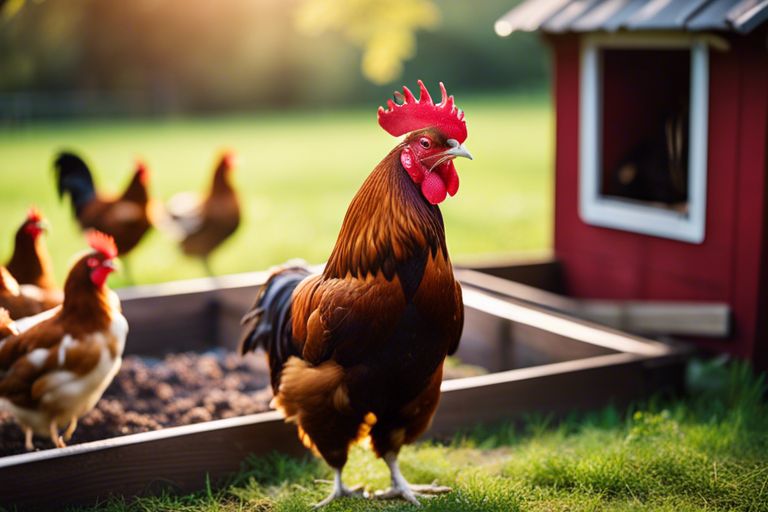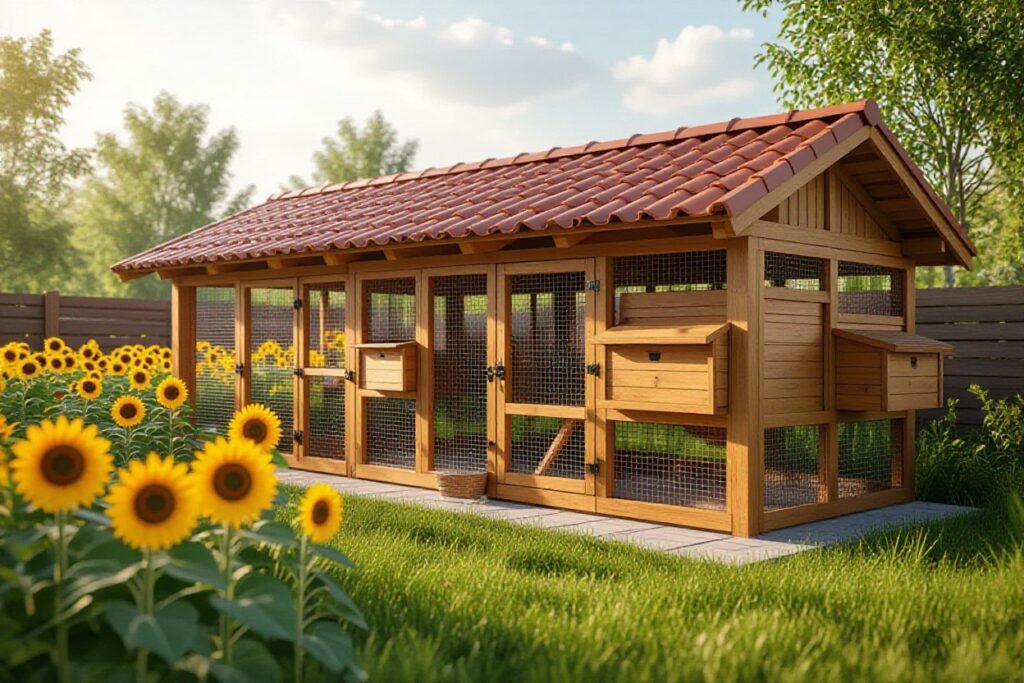Over the years, keeping roosters and chickens has become a popular trend among hobbyists and urban farmers. Whether you’re starting your flock or just looking to expand your knowledge, this beginner’s guide is here to help you navigate the basics of rooster care. From setting up a coop to understanding their nutritional needs and health requirements, we will cover everything you need to know to ensure your roosters are healthy, happy, and thriving. Let’s explore the world of raising chickens and begin on a fulfilling journey of poultry keeping together!
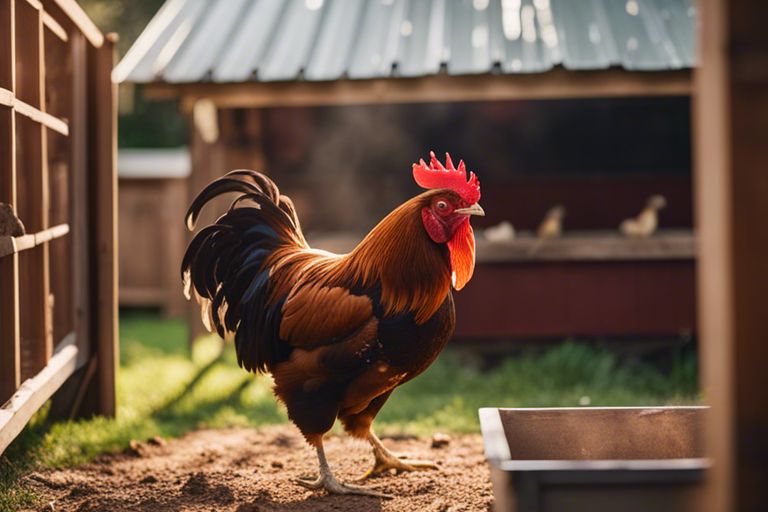
Getting Started with Chicken Keeping
Your journey into chicken keeping will be rewarding and fulfilling as you launch on this new adventure. Before you dive in, it’s necessary to grasp the basics of caring for chickens to ensure they thrive in your care.
Understanding Different Types of Chickens
Even for beginners, understanding the different types of chickens can be crucial in selecting the right breed for your needs. Here is a breakdown of some popular chicken breeds and their characteristics:
| Ameraucana | Lays blue eggs, friendly temperament |
| Rhode Island Red | Excellent egg production, hardy |
| Buff Orpington | Gentle, great for families |
| Leghorn | Good egg layers, active birds |
| Silkie | Fluffy feathers, broody hens |
The characteristics of each breed can play a significant role in your overall chicken-keeping experience. The choice of breed should align with your specific preferences and the environment in which they will be kept. The welfare and happiness of your chickens will largely depend on selecting the right type of chickens for your setup.
Key Factors to Consider Before Bringing Chickens Home
Chicken keeping requires careful consideration and planning to ensure the well-being of your feathered friends. Here are some key factors to ponder before welcoming chickens into your home:
- Coop size and space requirements
- Local regulations and ordinances
- Feed and nutrition needs
- Time and commitment for daily care
- Healthcare and emergency preparedness
Chicken keeping involves a significant commitment of time, effort, and resources. It’s crucial to evaluate these factors thoroughly before launching on your chicken-keeping journey. The well-being of your chickens depends on your ability to meet their needs effectively.
Types of chickens vary in terms of temperament, egg production, and appearance. Some breeds are better suited for cold climates, while others thrive in warmer environments. Understanding the specific requirements of each breed can help you make an informed decision when selecting chickens for your flock.
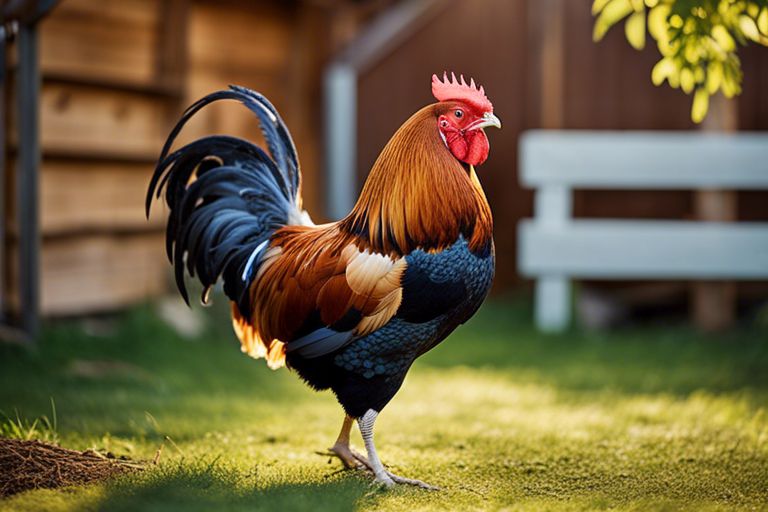
Step-by-Step Guide for Setting Up Your Coop
Choosing the Right Location
For optimal rooster care, selecting the right location for your coop is crucial. Ensure the site is well-drained, with good ventilation and natural light while offering protection from predators. Consider proximity to your home for easy monitoring and feeding.
Essential Coop Features and Tips
Coop design plays a vital role in providing a safe and comfortable environment for your roosters. Remember to include features such as sturdy construction, proper insulation, and ample space for roosting and nesting. Additionally, consider adding windows for ventilation and natural light, along with easy access for cleaning and maintenance purposes.
- Adequate space for roosting and nesting is imperative for the well-being of your roosters.
- Proper insulation will help regulate temperatures in the coop throughout the year.
- Regular cleaning and maintenance are crucial for a healthy living environment.
With these imperative coop features and tips in mind, you can create a functional and secure space for your roosters to thrive and stay healthy. Do not forget, a well-designed coop is the foundation for raising happy chickens.
Daily Care and Management
Now that you have your roosters settled into their new home, it’s important to establish a routine for their daily care and management to ensure that they thrive and stay healthy. Setting up a consistent schedule will help you stay on top of their needs and build a strong bond with your chickens.
Feeding Your Chickens: Types of Food and Tips
Now, when it comes to feeding your chickens, it’s crucial to provide them with a balanced diet to keep them healthy and happy. There’s a variety of food options you can offer your flock, from commercial poultry feed to kitchen scraps and treats. Here is a breakdown of different types of food and tips to keep in mind:
| Commercial Poultry Feed | Kitchen Scraps |
| Grains and Seeds | Fruits and Vegetables |
| Insects and Grubs | Protein Supplements |
| Offer fresh water daily | Avoid feeding moldy or spoiled food |
| Monitor their appetite and adjust portions accordingly | Introduce new foods gradually to prevent digestive issues |
This comprehensive list will ensure that your chickens receive the necessary nutrients for their overall health and well-being. Do not forget, a well-fed chicken is a happy chicken!
Health and Happiness: Monitoring Your Flock
Care for your chickens’ health and happiness is crucial for their overall well-being. Regularly monitoring your flock for any signs of illness or distress is key to preventing potential issues and ensuring a happy and thriving flock. By observing their behavior, appearance, and egg production, you can quickly identify any changes that may indicate a health concern.
Chickens are experts at hiding signs of illness, so it’s important to be vigilant and proactive in monitoring their health. Regular health checks and observations will help you catch any potential issues early on and provide the necessary care and treatment to keep your flock in top condition.
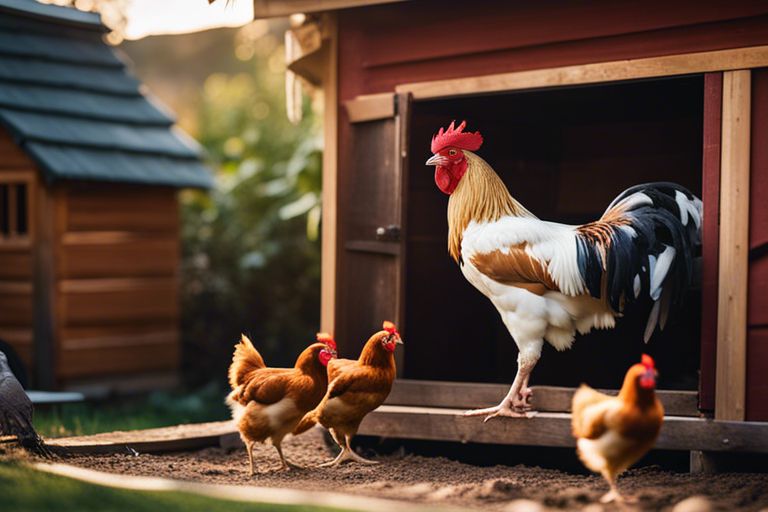
Pros and Cons of Raising Roosters
| Pros | Cons |
| Protective of the flock | Can be aggressive towards humans |
| Fertilize eggs for breeding | Can be noisy, especially in the morning |
| Adds beauty to the flock with their vibrant plumage | May not get along with other roosters |
| Demonstrate interesting behaviors like crowing and dancing | Can be territorial and cause fights with other chickens |
| Helps in finding food and warning of predators | Require more attention and care than hens |
The Benefits of Having a Rooster
Assuming you are looking to add diversity to your flock and potentially breed chickens, having a rooster can be advantageous. They provide protection, fertilize eggs for breeding, and add aesthetic appeal with their colorful plumage and interesting behaviors.
Challenges and Considerations
Now, adding a rooster to your flock comes with its own set of challenges and considerations. They can be aggressive towards humans, noisy, and territorial. Managing multiple roosters can lead to fights, and they require more attention and care compared to hens.
Another important consideration is the local regulations regarding roosters. Some areas have restrictions on keeping roosters due to noise concerns. Make sure to check your city ordinances before deciding to include a rooster in your flock.
Conclusion
To wrap up, ‘Rooster Care 101 – A Beginner’s Guide To Raising Happy Chickens’ provides important information for those looking to start their journey in caring for roosters. From understanding the basic needs of roosters to tips on creating a comfortable living environment, this guide covers all the necessary aspects of rooster care. By following the advice laid out in this guide, beginners can confidently raise healthy and happy roosters. Be mindful of, proper care, attention, and love are crucial in ensuring that your roosters thrive in their environment.
FAQ
Q: Why is rooster care important for beginners?
A: Rooster care is important for beginners to ensure the health and happiness of the chickens. Proper care can lead to better egg production, a stronger flock, and a more enjoyable experience for both the chickens and the owner.
Q: What should be included in a rooster’s diet?
A: A rooster’s diet should consist of high-quality poultry feed, supplemented with grains, vegetables, and occasional treats like mealworms. Access to fresh water at all times is also crucial for their health.
Q: How should roosters be housed?
A: Roosters should be housed in a secure coop that provides protection from predators and the elements. The coop should have proper ventilation, nesting boxes, perches, and enough space for each rooster to move around comfortably.
Q: How can beginners identify signs of illness in roosters?
A: Beginners can identify signs of illness in roosters by observing changes in behavior, appetite, droppings, and appearance. Common signs of illness include lethargy, discolored comb or wattles, coughing, sneezing, and reduced egg production.
Q: Do roosters require any specific healthcare routine?
A: Roosters require regular health checks, vaccinations, deworming, and parasite control to maintain their well-being. It is also important to practice good hygiene in the coop to prevent the spread of diseases.
Q: How can beginners handle aggression in roosters?
A: Beginners can handle aggression in roosters by establishing themselves as the flock leader, providing plenty of space and enrichment, and using distraction techniques like offering treats or using a barrier to separate the rooster from the flock temporarily.
Q: What are some tips for building a strong bond with roosters?
A: To build a strong bond with roosters, beginners can spend time with them regularly, hand-feed treats, talk to them in a calm and soothing voice, and engage in gentle handling. Building trust and respect through positive interactions will help strengthen the bond between roosters and their owners.
